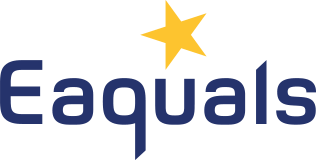Get to Know: Thom Kiddle
‘I first attended an Eaquals conference in 2012, soon after joining NILE, and I was struck by the collegiality and professionalism of the organisation. I really enjoyed the event and the friendly welcome and I received from so many members.’

Could you tell us something about your early career in the language teaching sector?
I couldn’t think what to do with a bachelor’s degree in Renaissance History, so I started with a CELTA from a language school in Devon, where I grew up, and my first job was at Cambridge School in Lisbon, Portugal, teaching a whole range of learners ages, levels and courses. I loved it – the job and the city – and honestly think that I could have stayed there permanently. However, I had always liked the idea of using the qualification to travel, and after two years in Lisbon, I took jobs as a language teacher in the UK, Australia, Thailand and Chile. In Thailand I became more serious about my professional development, took the Delta qualification, and became involved in teacher training and testing. Then in Chile I took an MA in Language Testing which moved me down the more specific career path.
Log in to continue reading Get to Know: Thom Kiddle and find out more about Thom’s first Eaquals experience and the advice he would give to those just starting their career in language teaching sector.
Get to Know: Thom Kiddle
‘I first attended an Eaquals conference in 2012, soon after joining NILE, and I was struck by the collegiality and professionalism of the organisation. I really enjoyed the event and the friendly welcome and I received from so many members.’

Could you tell us something about your early career in the language teaching sector?
I couldn’t think what to do with a bachelor’s degree in Renaissance History, so I started with a CELTA from a language school in Devon, where I grew up, and my first job was at Cambridge School in Lisbon, Portugal, teaching a whole range of learners ages, levels and courses. I loved it – the job and the city – and honestly think that I could have stayed there permanently. However, I had always liked the idea of using the qualification to travel, and after two years in Lisbon, I took jobs as a language teacher in the UK, Australia, Thailand and Chile. In Thailand I became more serious about my professional development, took the Delta qualification, and became involved in teacher training and testing. Then in Chile I took an MA in Language Testing which moved me down the more specific career path.
What big changes have you noticed in the language teaching field since you started?
From 1997 to now I have noted the shift towards younger learners across many, if not all contexts, both in private language schools and state school systems. The second thing is the ebb and flow of technology and its use both in the classroom and how it has facilitated language learning and teacher development online. On a personal level, I’ve been much more involved in the latter change. I have nothing but respect for teachers of primary- and pre-primary learners – I just know it’s not for me!
Why did you choose to get involved with an organisation like Eaquals?
I first attended an Eaquals conference in 2012, soon after joining NILE, and I was struck by the collegiality and professionalism of the organisation. I really enjoyed the event and the friendly welcome and I received from so many members. We’d had an Eaquals inspection at NILE pretty much the week after I started, so I wasn’t very much involved in that, but saw how much it meant to everyone. I joined the Eaquals Development Group in 2015 and became a Trustee in 2017, and have enjoyed working with new colleagues and friends in many of Eaquals’ areas of expertise. I like the quality associated with Eaquals, and the contacts and new business which being an Eaquals accredited member have brought us at NILE.
What new development in the field of language teaching interests/excites you the most?
Two things really interest me at the moment. One is the increased awareness of learning differences and diversity and inclusion which has really found a foothold in our industry in the last five years or so. Our own course for teachers in Learning Differences and Inclusion has been an eye-opener for me, and I think as we learn more about this area it’s really going to help the way we are all able to work effectively with learners. The second is the potential of 360-degree video and audio in teacher training. It’s a very new area, but one which could revolutionise the way we look at peer-, self- and performance observation in the years to come.
What advice would you give to a new teacher/trainer starting out in the language teaching sector?
Well, I’ve always liked the Oscar Wilde quote – “I always pass on good advice. It is the only thing to do with it. It is never of any use to oneself.” So in that vein I will suggest three of the things I find myself wishing I had more time for since taking over as Director at NILE: 1) Make sure you spend time talking to other people about their jobs, and what challenges they have, as it makes the workplace a much more engaged place if you understand each other; and 2) Watch as many colleagues’ lessons as you can – peer observation and discussion is a wonderful way to develop techniques, ideas and also confidence in your own approach to teaching and training. And 3), when you’re ready for a new step, take your professional development seriously if you want to be taken seriously in our sector.



